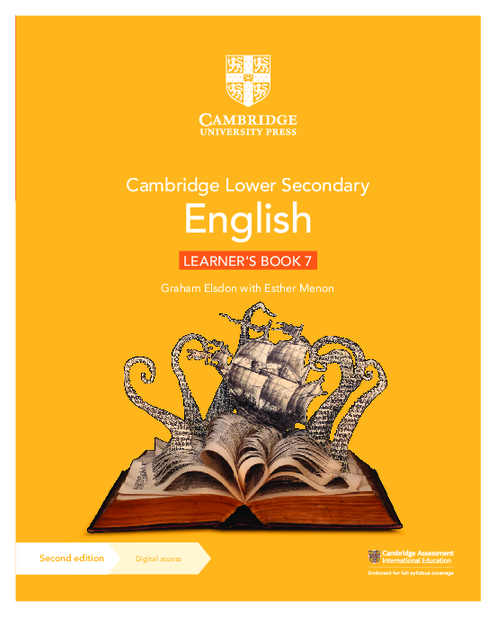English year 7 Learner′s Book - PDF
Mark William
1. Writing and Literary Analysis – Summarizing genre features, writing monologues, analyzing poetry, crafting spoken dramas, structuring narratives, and exploring themes with formal and informal language.
2. Discussion and Communication – Engaging in pair and group discussions, predicting outcomes, presenting viewpoints, recounting anecdotes, and developing critical thinking through dialogue.
3. Linguistic and Stylistic Techniques – Sentence structures, embedded clauses, time connectives, punctuation, word choice, prefixes, and formal grammar for effective communication.
4. Creative Writing and Expression – Writing flash fiction, poetry, interviews, letters, travel articles, reviews, scripts, autobiographies, and reflective narratives.
5. Exploration of Themes in Literature – Adventure, fame, life stories, unusual education, dangers of the sea, and cultural or historical perspectives in contemporary fiction, nonfiction, science fiction, and poetry.
6. Critical Thinking and Social Responsibility – Justifying literary choices, analyzing language, exploring social issues, discussing global perspectives, and understanding the ethical implications of storytelling.
See More Coursebook 9 months ago
English 7 Subject directory
All resources in one place
Related Past Papers
Related Tutorials
Crash report

